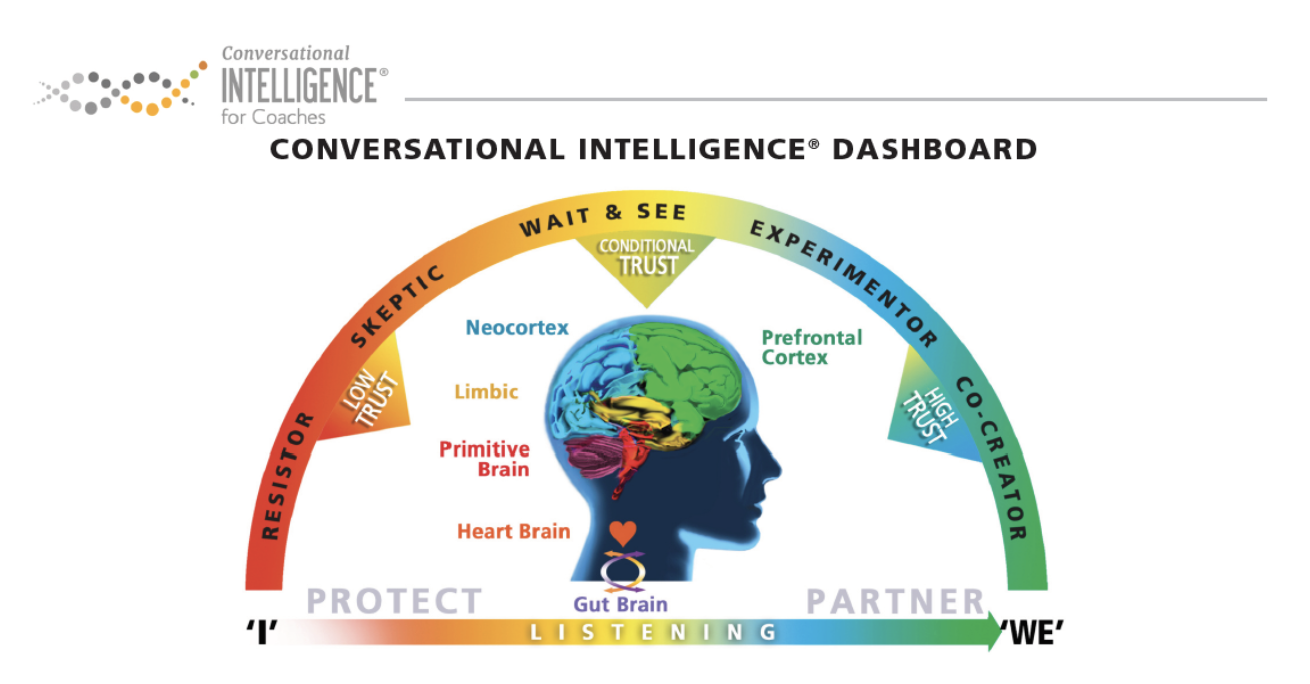
As the month of March began, we were watching the Coronavirus spread across China and Europe but here across the pond, we continued to operate as business as usual.
I look back at notes I took at client meetings and coaching calls during the first week of March and it feels like it was a different reality. Indeed it was… since then, our inboxes and feeds have been exploding with news of the spread of the virus across Europe, U.S. and North America. Restrictions are being put in place daily to flatten the curve. We are trying to find a new rhythm of life navigating COVID-19. We are experiencing the metamorphosis of a new world order.

With this sudden dramatic shift in our daily routine, our brains revert to our most primitive state, the reptilian brain. “What is going on? How can this be happening? This isn’t real. This doesn’t make any sense? I need to protect myself”.
The reptilian brain is the oldest part of our brain, developed in primitive humans to make decisions to protect us from the lions, tigers and bears. When we are in our primitive brain we are reactive, we take a stance of fighting, fleeing, appeasing or freezing. None of these stances can help us navigate this new normal.
If you have been reading my blog over the last few years, you have seen some posts about Conversational Intelligence® or C-IQ. Conversational Intelligence is about moving from the “I-Centric” primitive brain to the “We-Centric” prefrontal cortex part of the brain. The capabilities that reside in the prefrontal cortex are empathy, creativity and innovation. These are the skills we need to find our way in the new normal.

Photo source: Conversational Intelligence® for Coaches
What does it take to move from the primitive brain to the prefrontal cortex?
- Recognize you are in your primitive brain and take several breaths. This calms the nervous system and slows down the cortisol which is the hormone activated by this fear response.
- Reduce the amount of media you consume about the pandemic (don’t scroll your phone before bed or immediately when you wake up). This allows your brain to start and end the day with more optimism.
- Reach out to friends and family members who are finding their way in this new normal. We may have “stay at home” orders in place but humans are social beings. We need social solidarity to move to the prefrontal cortex.
- Take Microsteps of creating new habits. There are SO MANY resources out there but I really like what Thrive Global is curating in their new series, “Thriving in the New Normal” that offers Microsteps about sleep, nutrition, stress, and more to help us proactively strengthen our immune system and build resilience.
During this time, our initial tendency is to go to that primitive brain and hunker down, hoping that it will pass. We all know now that we are in this together for the long haul. We are co-creating our new normal.
If you are in your primitive brain, feeling lost, stuck, not knowing what steps to take, let’s chat. I am here for you and look forward to co-creating the new normal with empathy, creativity and innovation. A new normal that works for all of us.


